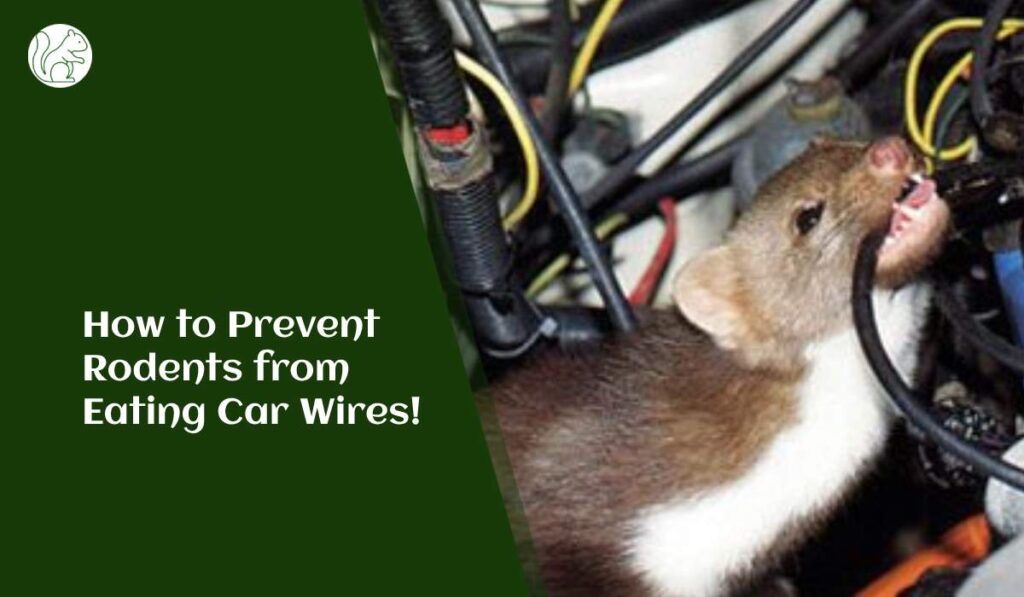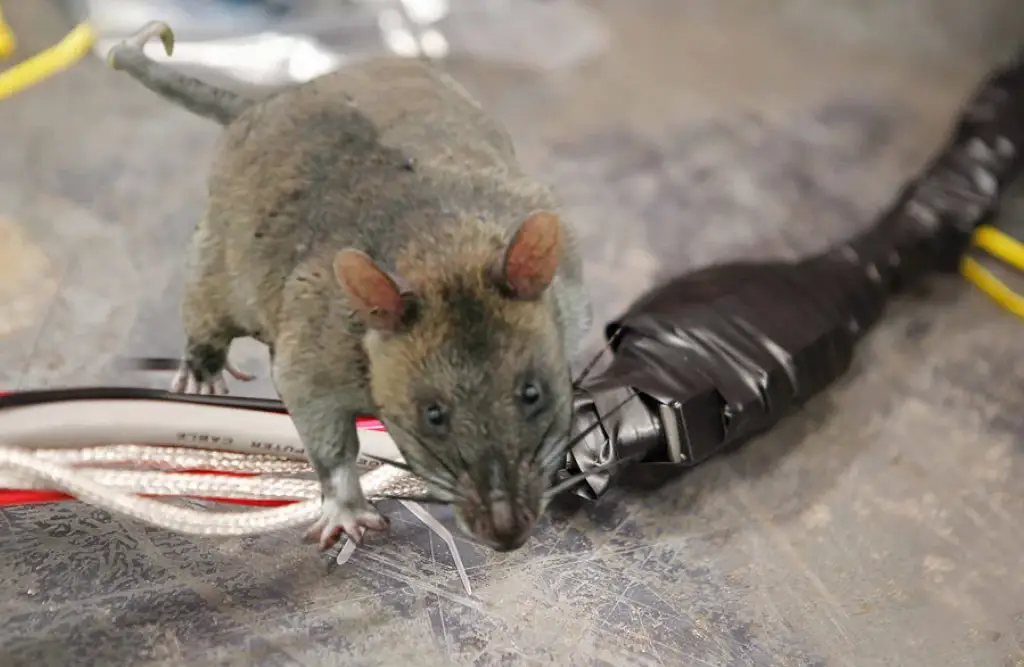The world of automotive maintenance comes with its own unique set of challenges, not least of which is the unexpected issue of rodents nibbling on car wires. This behavior, while puzzling, is a widespread problem, causing costly damages and even rendering vehicles inoperable. Understanding why rodents target your car’s wiring and knowing how to prevent it can save you significant distress and expense.

Understanding the Rodent Motive
Before we delve into preventive measures, it’s crucial to understand why rodents find car wires so appealing. As we’ve previously explored, the gnawing habit of rodents is an instinctive behavior. Car wires, with their soft insulation and easy access, make an ideal target. The warmth and safety of a parked car can also be a significant attraction for these creatures, especially during colder months.
1. Parking Habits and Environment
Your parking habits and environment can significantly influence the likelihood of a rodent making a home in your car. If possible, park your car indoors, in a garage, where it can be protected from rodents. If you must park outdoors, try to avoid areas with heavy rodent activity or near places that provide them shelter, such as tall grass, shrubs, or piles of wood.
2. Regular Use of Vehicle
Frequent use of your vehicle can deter rodents. A regularly running engine will disrupt any potential rodent nesting. If you don’t use your car frequently, consider occasionally starting and moving it.
3. Engine Bay Inspection and Cleaning
Routinely inspect your engine bay for signs of rodent activity, such as droppings, nesting materials, or chewed wires. A clean engine bay is less likely to attract rodents. If you spot any signs, clean the area thoroughly and consider applying repellents.
4. Use of Repellents
There are various natural and commercial repellents that you can use to keep rodents away from your car. These include sprays designed for use on car wires, which have a taste or smell that rodents find unappealing. Natural repellents like peppermint oil or predator urine can also be used.
5. Rodent-Proofing Car Wires
Some manufacturers offer rodent-resistant tape and wire wrap that you can apply to your car’s wires. These products are usually treated with a substance that rodents find unpleasant, deterring them from chewing.
6. Ultrasonic Repellents
Ultrasonic repellents, which emit high-frequency sound waves that rodents find distressing, can be an effective solution. These devices can often be plugged into your car’s power outlet.
7. Professional Pest Control Services
If you’re dealing with a persistent rodent problem, seeking help from a professional pest control service can be beneficial. They can provide comprehensive solutions, including trapping and removing rodents, sealing potential entry points, and providing advice on long-term prevention.
Preventing rodents from chewing your car’s wires is an achievable goal. By understanding their behavior and applying these proactive measures, you can protect your vehicle, saving you from unnecessary stress and costly repairs. Remember, the key lies in regular monitoring, cleanliness, and the strategic use of repellents and rodent-proofing tools.
Decoding the Mystery: Why Do Rodents Eat Car Wires?
The intriguing question of why rodents chew on car wires has puzzled vehicle owners for years. To demystify this, we must dive into the world of rodent behavior.

Rodents, such as rats, mice, and squirrels, have teeth that grow continuously throughout their lives. To keep their teeth in check and prevent overgrowth, they need to gnaw on various materials, a behavior that is vital for their survival.
So, why do car wires become their chosen gnawing targets? Car wires, encased in soft and easily penetrable insulation, present an ideal material for rodents to exercise their teeth on. Furthermore, the under-hood area of a car, where most wires are located, offers a warm, safe, and secluded space – perfect for these creatures to take shelter, especially in colder months.
Additionally, some speculate that the soy-based wire coatings used in many modern vehicles may be attractive to rodents. However, more research is needed to confirm this theory.
In summary, the gnawing of car wires by rodents can be attributed to their instinctive need to manage tooth growth, coupled with the inviting characteristics of car wires and their surrounding environment.
Conclusion
In the journey of vehicle ownership, the unexpected hurdle of rodent damage can cause significant distress. However, armed with the right knowledge and tools, this is a challenge that can be effectively navigated. By understanding why rodents are attracted to car wires and implementing preventive measures, you can protect your vehicle from unwanted rodent visitors.
Remember, the cornerstone of this prevention strategy lies in regular monitoring, maintaining cleanliness, and using repellents strategically. Each car and situation may require a different combination of these tactics, so don’t be disheartened if the first approach doesn’t work.
In the end, it’s not just about safeguarding our cars, but also about fostering an understanding of the fascinating creatures that rodents are. By finding ways to coexist, we can ensure the integrity of our vehicles while also respecting the instinctive behaviors of these creatures.
With patience, perseverance, and the right approach, we can keep our cars running smoothly, free of rodent interference. Here’s to safe and worry-free drives ahead!
